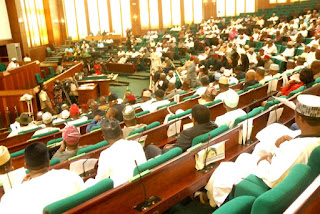Recall that the National Assembly’s budget was jerked up from N115 billion in 2016 to N125 billion, representing N10 billion increment in the 2017 fiscal year.
On the N143 billion increase, spokesman of the House, Abdulrazak Namdas, who confirmed the increase, explained that major chunk of the increase was channelled to federal road projects.
He stated that the N143 billion increase was justifiable, adding that the money was realised from the $2 increase in the crude oil benchmark initiated by the National Assembly.
He explained: “The increment is necessary because so many agencies were seeking increase and this becomes very important for us to get out of recession.
“I can assure you, this is the best budget ever done in this country. Don’t forget, we held public hearing where inputs of Nigerians were accommodated. We also held regular meetings with the Executive to reflect their priority areas, so it is the people’s budget.”
Responding
to inquiry over the high recurrent expenditure in the budget, he
observed that the present administration did not conceive reduction of
workers’ salaries and allowances, adding that the recurrent expenditure
represented about 70 percent of the total federal budget. He assured
that the 30 percent allocation to capital expenditure was commendable.
A
breakdown of the report laid by Rep Mustapha Dawaki (APC-Kano) showed
that N434,412,950,249 is for Statutory Transfer; N1,841,345,727,206 is
for Debt Service; N177,460,296,707 is for Sinking Fund for maturing
bonds; N2,990,920,033,435 is for Recurrent (Non-Debt) Expenditure while
N2,174,496,775,867 is for contribution to the development fund for
capital expenditure for the year ending 31st December, 2017.A breakdown of the N7.298 trillion budget presented by President Muhammadu Buhari showed proposed aggregate expenditure of N419.02 billion for Statutory transfers; N1.66 trillion for Debt service; N177.46 billion for Sinking fund to retire certain maturing bonds; N2.98 trillion for Non-debt recurrent expenditure and N2.24 trillion for capital expenditure of N2.24 trillion (including capital in Statutory Transfers).
A further breakdown of the budget showed increase of N15 billion in statutory transfer; N18 billion in debt service; N1 billion in non-debt recurrent expenditure; N16 billion for capital expenditure, while the N177.46 billion proposed for sinking fund was retained by the parliament.













Post a Comment